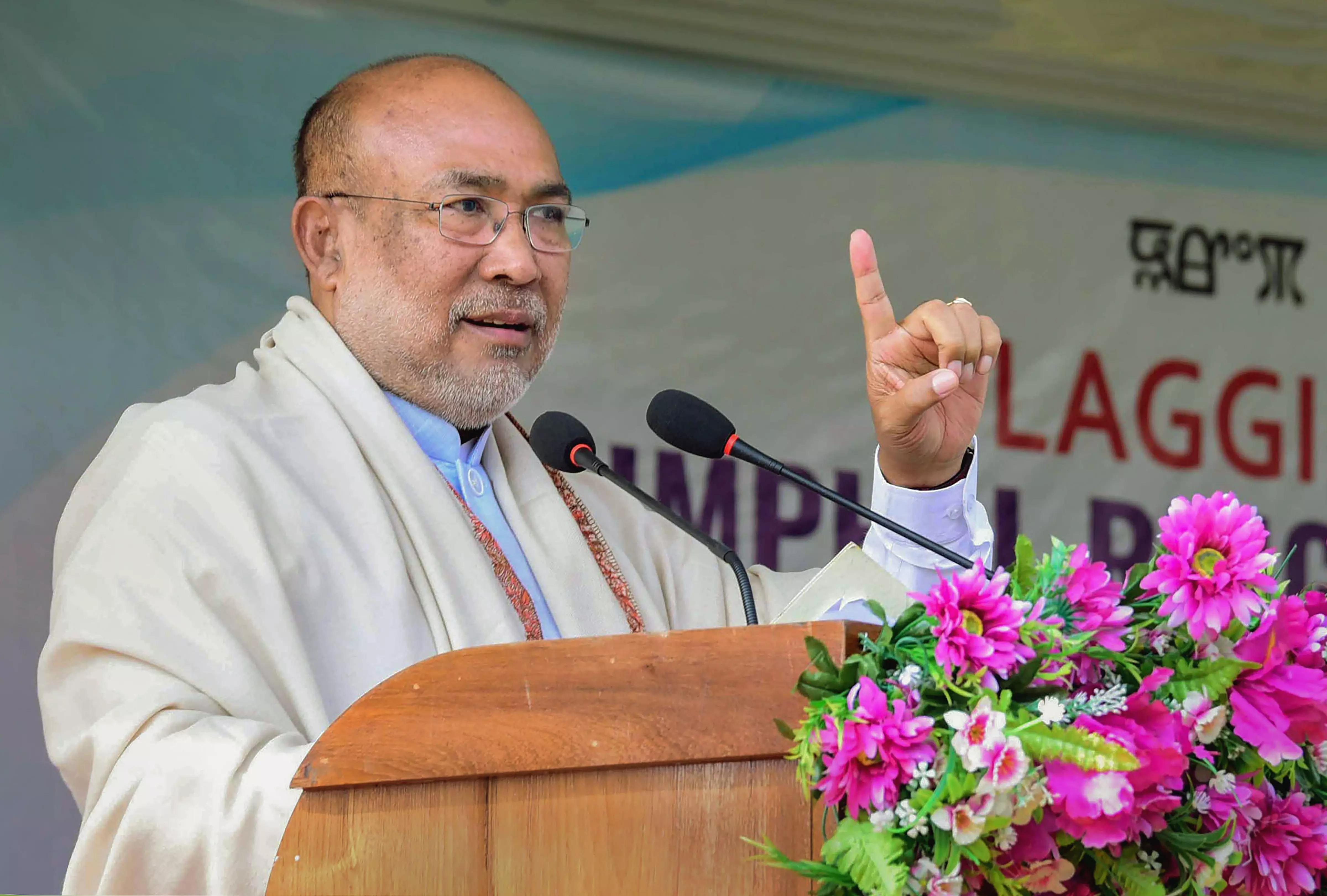Kamal Davar | Raging turmoil in Myanmar poses security threat to India’s Northeast

The turmoil in neighbouring Myanmar that is almost turning into a civil war has prompted the Government of India to decide that the country’s border with Myanmar will be covered by barbed fencing, much like the India-Bangladesh border. The states of Arunachal Pradesh, Nagaland, Manipur and Mizoram share a 1,643-km border with Myanmar. There is also a rethink on the free movement agreement with Myanmar that allows people living 16 km on either side unfettered cross-border movement on the production of border passes. The fierce fighting raging in Myanmar has led to deep security concerns in India, besides the large influx of refugees, which will be a natural outcome of this turmoil.
India’s Northeast, often regarded as a “distant frontier” is also described in the government’s Vision Document 2020 as a “rainbow country”. It is surrounded by Bangladesh, Bhutan, China, Nepal and Myanmar. It includes the “seven sisters” -- Arunachal Pradesh, Assam, Manipur, Meghalaya, Mizoram, Nagaland and Tripura. Sikkim too is seen as a part of this region. It has wide disparity in cultures, customs, languages and traditions. A host of geopolitical, historical, political and social conflicts
have afflicted this region for years and posed both external and internal security challenges to this country. Geographically distant and economic disparities have further widened the chasm between the Northeast with the rest of India.
The Northeast has seen some turmoil or the other since Independence in 1947, at times due to adverse external influences, internal fratricidal tribal conflicts or differences with New Delhi on many issues, including sovereignty. Yet, over the years, there is an unmistakable improvement with tribals living in various states joining the national mainstream and contributing to the nation’s growth. While a majority of tribes are now enthusiastic votaries of the country’s democratic system, some serious intra-tribal conflicts persist, often leading to violence and mayhem.
Some of these are engineered from across the porous borders between the Northeast states and the countries surrounding them, with China having a hidden hand in supporting some of these insurgencies.
The tumultuous and continuing violence in Manipur for around the past nine months or so symbolise the internecine tribal fissures, which need to be addressed by the Centre with alacrity and sensitivity. It cannot be denied that the civil war raging in neighbouring Myanmar for over the last three years has also contributed to instability in Manipur and now threatens to spread to Mizoram and perhaps even other states in the region. That India’s Northeast is the gateway for the successful pursuit of
New Delhi’s “Look East Policy”, referred to now as the “Act East Policy”, is a cardinal imperative for this nation. Thus, the significance of peace and political stability in Myanmar impacting India’s overall East Asian strategies cannot be over-emphasised.
A dispassionate clinical look at the current situation in Myanmar is most essential for Indian policies to be formulated in the foreseeable future. The present conflict in Myanmar was triggered by the February 2021 military coup that toppled the democratically elected government. Apart from causing unjustified casualties to peace-loving civilians and the total disruption of human rights among its citizenry, Myanmar’s military junta has shown its incompetence in ruling the nation. In the last three years, tens of thousands of people have fled their homes in Myanmar and sought refuge in India’s Northeast, further compounding the security situation there and augmenting tribal fissures in them.
Due to the ethnic bonhomie with the incoming refugees, initially the state governments in Manipur and Mizoram, contrary to the Centre’s directives, showered some humanitarian munificence on the refugees.
Ironically, though itself a strong democracy, India has always retained a close relationship with Myanmar’s military, which has a reputation of undermining democracy in Myanmar and leading authoritarian regimes.
India feels the military junta’s cooperation is essential for New Delhi to deal with the many insurgent outfits roaming around this region and on its periphery. Myanmar’s assistance in counter-insurgency operations by striking cross-border against Chinese proxy gangs, based in Myanmar’s inhospitable border regions, is required by India’s security forces and therefore this country strives to maintain sound relations with the military junta. However, it is also a fact that the Myanmar military junta has miserably failed to contain its own insurgencies.
Currently, Operation 1027, against the military junta, launched by the Three Brotherhood Alliance members comprising the Arakan Army, the Myanmar National Democratic Alliance Army and the Ta’ang National Liberation Army, based in the states of Rakhine and Shan in Myanmar, have achieved substantial success. Many other smaller insurgent groups have joined this alliance. The United States also has been supporting for many years the National Unity Government comprising of insurgent groups against the military junta.
This US policy has forced the Myanmar military government to look towards China and Russia for sustenance and military support. For India, the international pulls and pressures within Myanmar, the inability of the junta to maintain peace and tranquility inside their nation and the proliferation of strong insurgent and separatist groups portends ominous tidings. The influx of illegal immigrants, an increase in the already existing substantial drugs trade and weapons to fuel local insurgent groups within our Northeast region, is fraught with serious security concerns. The current situation in Manipur is an example of this ascending malady.
Apart from an increase in tribals clamouring for economic dominance in parts of the Northeast, there exists among some of them separatist tendencies which need to be closely monitored and nipped in the bud.
Notwithstanding any other preoccupations, our security establishment must devote adequate time to holistically evolve a comprehensive and firm policy to ensure the maintenance of peace and stability across our strategic Northeast region.

